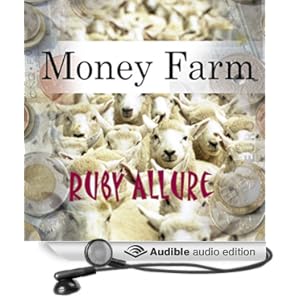The Art of Dealing with Criticism

Can you think of a single person who likes to be criticised?. Has anyone in the past wandered up to you and said please criticise me? This week I have been thinking a lot about criticism and people's perspectives because I had some work provided with 'constructive feedback.'
Just to give you an insight of what initiated these thoughts, within my corporate social media and business work, I often produce presentations. I am always trying to progress and make them more and more interesting. Quite often I push boundaries. Of late I have been using a program called Videoscribe to produce small films to illustrate themes like Rewards and Recognition and promote the Social Media within the corporate environment. For those who work in business or in a corporation; I am sure you know that the main way of communication is through email or making very straight-line Powerpoint presentations. Nothing jumps out at you and the header should be another 'boring email that talks at me.' This is why I lead a communications team because I don't do boring.
So this week I made two presentations that were used on a Global scale and my Managing Director came up to me and said "I saw your films. They were very clever but I would not have done it like that." So that was the line... that made me travel on the journey of criticism and how people pass comment on others. I realised that most people's response to criticism is to become defensive. The second is to respond with a snarky comment and the third is to desire to punch them in the balls or smack a female version around the head with a handbag (in your mind of course!) The thing is sometimes people believe they are being helpful. There have been times when a comment has shown me something I missed. So not all criticism is bad. Sometime it is more how you deal with it.
So with this in mind I came up with the following on how to deal with criticism.
The biggest thing is to not take whatever is said personally. People make comments based on themselves. Sometimes they don't even realise they are criticising. What is interesting is so many people believe you care about their opinion. Remember it is just an opinion. Also use the comment to evaluate whether something can be done better to improve your project or whatever is being commented on.
So here are a few responses:
Response: Thank you for your insight. How would you do it? Oh have you done it like that before and did it get a good response? (This is not to be said with a tone of sarcasm, no matter how tempting).
Thank you for your opinion. What did you feel that worked and what needs to be adapted?
If you are not bothered by people's approval simply say 'thanks for your input.'
Or if you are a bit of a git then simply say 'I would love to see how you would do it and see the final piece.' I write this because the person concerned does not deliver and is just a talker. There are plenty of those in life.
This subject then made me think that there must be benefits to criticism... Why else would people do it? In my opinion it is a power dynamic. People criticise to 'steal your fire.' The thing is when you have established self-esteem you look at them and in your head you think 'I couldn't give a sh** what you think.
So the benefits of criticism are as follows:
The Benefits of Criticism
Personal Growth:
1. Are there any seeds of truth that can be worked on? If there are how can you use this to enable you to grow?2. Is there a new perspective that you can use? You can expand, evaluate and evolve your thinking?
3. Take the opportunity to hear. Again Criticism gives you a chance to listen effectively to determine what someone actually means.
4. You have the chance to see the world through a critics' eyes. If they are criticising you then what must be going on inside their heads at themselves?
5. When critics hit a sensitive spot then it is an opportunity explore unresolved issues. Why else would you be triggered into a reaction? If you were resolved within your self then would just smile and say thanks.
6.Criticism enables you to choose peace over conflict. You have a choice - create a drama or let it go.
7. Do you have people-pleasing tendencies? Criticism and your response will highlight whether you desire to please others. Ask yourself why you need to please? Also criticism enables you to define boundaries and teach people how you want to be treated.
8. Learn to be criticised and move on quickly. It the same as fail quickly and move to success.
You can learn to be time efficient and stop wasting mental energy on being criticisied.
If you have the right state of mind criticism enables you to progress, learn how you feel and whether you wish to be around the critic. We all have inner critics and sometimes criticism reveals something you already knew. Wouldn't it be worse if everyone said something was brilliant and there was an obvious flaw that you had not seen and no one had the balls to tell you? The critical enemy can be your best friend!
AUDIBLE LINK FOR A SHORT COURSE IN CREATIVE WRITING: http://amzn.com/B01390THLK
21/08/15
"An Unexpected Gem"
***I was provided a copy of this audio book for the purpose of a review ***
With the required disclaimer out of the way, let me be brutally honest, I had not expected this little gem. In fact, I had expected my listening would be a bit rough and was fortified by it being less than 2 hours.
The synopsis says the author wrote the book as a takeaway from her evening classes on creative writing. My mental context was ... Community Ed evening classes ...and expected a well intended but kind of amateur product. However, I am interested in adult education, and batter my own nerd head against a giant personal creativity brick wall.
So you have an idea of my mind set... low expectations along with high interest.
Amateur hour it was NOT.
I don't know where the author teaches her class, but Sign Me Up! And bring the narrator. Wow. Two hours of unadulterated, straight up, right on, good learning material delivered by a close friend just sharing the material. The narrator's voice was warm, sincere without any artifact or pompous patronising, and well modulated throughout. The material was mind opening for me, with the right mix of the mechanics of writing exercises, sufficient context that using prompts now makes sense to me, and a sprinkling of the inner heart work of creativity through written material.
This was just what I didn't dare hope for in a how to creative writing listen.
Truly an unexpected gem and a learning and growing experience for me.
A keeper and one I will return to many times as I deconstruct my own wall, one block at a time.
Thank You, Ruby and Thank You, Erin.
With the required disclaimer out of the way, let me be brutally honest, I had not expected this little gem. In fact, I had expected my listening would be a bit rough and was fortified by it being less than 2 hours.
The synopsis says the author wrote the book as a takeaway from her evening classes on creative writing. My mental context was ... Community Ed evening classes ...and expected a well intended but kind of amateur product. However, I am interested in adult education, and batter my own nerd head against a giant personal creativity brick wall.
So you have an idea of my mind set... low expectations along with high interest.
Amateur hour it was NOT.
I don't know where the author teaches her class, but Sign Me Up! And bring the narrator. Wow. Two hours of unadulterated, straight up, right on, good learning material delivered by a close friend just sharing the material. The narrator's voice was warm, sincere without any artifact or pompous patronising, and well modulated throughout. The material was mind opening for me, with the right mix of the mechanics of writing exercises, sufficient context that using prompts now makes sense to me, and a sprinkling of the inner heart work of creativity through written material.
This was just what I didn't dare hope for in a how to creative writing listen.
Truly an unexpected gem and a learning and growing experience for me.
A keeper and one I will return to many times as I deconstruct my own wall, one block at a time.
Thank You, Ruby and Thank You, Erin.
TO BUY MONEY FARM ON AMAZON.com http://amzn.com/B010F04W9O
· Frode
06/08/15
5 STAR
"M.O.N.E.Y. is bad? This book is not!"
So Money Farm by Ruby Allure was a surprise! When I REALLY did not read things about this book I review for Audiobook Blast, I sometimes get books I don't know something about. BTW: I read 99% about the books I want to review, but this book I can't remember I did that for. Anyways: This was a nice surprise, and I think it is one of those books that is better the second time you read it. No joke! I listen to this twice before I made this! Money Farm makes you thin, and who does not like to hear a book that makes you think? It is an awesome book, that I will recommend to all that likes audiobooks, and really to people that does not!
Helen Lloyd English accent its the topic like a glow and a hand! Her "lady like" voice is so cold, and clear I feel that the author made this book thinking that Helen Lloyd would read it out loud! That is how I feel those two fits together! The 2 times 14 hrs and 6 mins I spend with her never feels boring or uninteresting! I would love to spend it again, and I will because this book I will hear again, and again, even when it is 14 hrs and 6 mins long! That is saying something!
I was provided this audiobook at no charge by the author, publisher and/or narrator in exchange for an unbiased review via AudiobookBlast dot com
Helen Lloyd English accent its the topic like a glow and a hand! Her "lady like" voice is so cold, and clear I feel that the author made this book thinking that Helen Lloyd would read it out loud! That is how I feel those two fits together! The 2 times 14 hrs and 6 mins I spend with her never feels boring or uninteresting! I would love to spend it again, and I will because this book I will hear again, and again, even when it is 14 hrs and 6 mins long! That is saying something!
I was provided this audiobook at no charge by the author, publisher and/or narrator in exchange for an unbiased review via AudiobookBlast dot com
MONEY FARM
What did you like most about Money Farm?
It was an eye opener.
What did you like best about this story?
I like the way it made you think about the way normal everyday life is here and now, and the future...
Have you listened to any of Helen Lloyd’s other performances? How does this one compare?
Helen Lloyd narrated this fairly long audiobook brilliantly. Although the story content was very intense and thought provoking, her lovely smooth voice was very easy to listen to and I thought it was just perfect, a fascinating book wonderfully narrated.
Was this a book you wanted to listen to all in one sitting?
Yes it was, although it is too long to do so.















